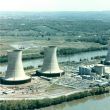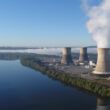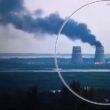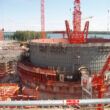Nuclear power: Between faith and fear
By Sharon Squassoni, August 25, 2011
Several years ago, an American utility executive said, “Nuclear energy is a business, not a religion.” This was a refreshing change from the usual ardent support or criticism of nuclear energy. To most people, the nuclear landscape looks quite different. Nuclear energy is not seen as just another way to boil water, and that is precisely why it usually evokes an almost religious faith or fear.
The big difference separating nuclear energy from the alternatives is public acceptance. The BP oil spill raised many questions about the safety of offshore drilling, but few about whether we should give up oil. Despite overwhelming dependence on foreign oil and resultant concerns about energy security, the public largely accepts oil as mundane and ubiquitous. One cannot imagine, for example, the Oil and Gas Journal soliciting comments on what makes oil different from other energy sources. It just wouldn’t be an interesting debate, primarily because the hearts and minds of the public are already won over.
Not so for nuclear energy. Fifty years and 104 power reactors in the United States later, nuclear energy still inspires debate. Unfortunately, the debate is often more polarizing than illuminating. To wit: After the Three Mile Island and Fukushima accidents, supporters of nuclear power argued that no one died and that such accidents result in fewer deaths and dislocations than major coal- and petroleum-related accidents. Strictly speaking, those facts are true, but are they relevant? Can the public be won over by such arguments?
In government we trust … Public acceptance is fundamentally based on trust. For nuclear energy, that translates into trust in governments, for a variety of reasons. Civil nuclear energy grew out of military nuclear-weapons programs; it is essentially a “spin-off” of defense programs. Because some elements of the nuclear fuel cycle can produce fissile material for either nuclear fuel or nuclear weapons, nuclear energy is highly regulated. Virtually all “commercial” enrichment facilities are either government-owned or government-controlled, and all reprocessing facilities are government-owned. Even the exceptions, such as the US Enrichment Corporation and the European URENCO, have significant government involvement. For example, US government decisions about Energy Department uranium holdings, Russian anti-dumping restrictions, and federal bail-outs have helped the US Enrichment Corporation avoid bankruptcy in the almost 20 years since uranium enrichment was privatized in the United States. URENCO operates profitably without financial support from its governments (German, Dutch, and British) but is strictly bound by international treaties.
Nuclear power reactors in the United States, on the other hand, are largely privately owned and operated. Without legal limits on their liability in the event of a significant accident (under the Price-Anderson Act), however, such reactors could not compete with alternatives, because the cost of private insurance would be prohibitive. As for new reactors in the United States, the Energy Department’s Nuclear Power 2010 program attempted to jump-start the next round of reactor construction, but nothing short of a legislated price on greenhouse gas emissions is likely to result in the kind of new nuclear construction that proponents advocate.
Overseas, the trend has been for even more government involvement, if not outright ownership. Nuclear manufacturing industries are heavily subsidized or controlled, and nuclear reactors are run, in many cases, by government-controlled entities (for example, EDF and Areva in France and Atomenergoprom in Russia). For new reactors, governments dictate the terms of the bids and, increasingly, the incentives provided to suppliers. It is no coincidence that the winning bid for four reactors to be built in the United Arab Emirates included $10 billion (out of $18.6 billion total) in project financing from the Korean government. Nuclear cooperation in recent years has been more than just business for many countries; suppliers choose their partners carefully, adding to the prestige attached to nuclear power.
Such expensive infrastructure projects require government support, but more importantly, they require strict government regulation to ensure safety, security, and the non-diversion of materials for nuclear weapons. In contemplating the expansion of nuclear power to additional nations, what risks do governance challenges pose for the safe operation of nuclear power plants? Further, will governance challenges promote or suppress the kind of transparent, consent-based approach that is so vital to public acceptance of nuclear energy? The experience of Japan, an advanced nuclear state with few apparent governance issues, in responding to Fukushima is a cautionary tale.
…Or do we? Japan’s investigation into the Fukushima accident exposed vulnerabilities in its system of nuclear regulation. In fact, some have suggested that Fukushima was worsened by peculiarities of the Japanese system. One of the criticisms leveled within Japan is that a cozy relationship between nuclear utilities, regulators, and politicians — the so-called “nuclear village” — resulted in avoidable safety lapses. Another is that the bureaucratic structure has favored nuclear power promotion over regulation. A third is that the enormous incentives for siting nuclear power plants all but silenced public opposition, since small villages found it difficult to reject lucrative deals worth billions of dollars and thousands of jobs.
These weaknesses are not unique to nuclear energy, but they are especially relevant for their impact on public trust. An argument for strong government involvement in nuclear power is the government’s mandate to protect the public and the environment from radiation releases. Recently, the prime minister of Japan, Naoto Kan, has been considering nationalizing the Tokyo Electric Power Company’s nuclear power plants, leaving Tepco in charge of thermal and hydropower plants. This is not just the result of the enormous losses incurred as a result of the Fukushima accident, but a more profound loss of faith in Japanese companies’ protection of the public good. Whether bureaucratic realignments can improve regulation in Japan and deflect criticism of the government remains to be seen.
Resurrection for nuclear energy? Before Fukushima, nuclear energy seemed to be on a glide path toward doubling or tripling capacity worldwide. The traditional challenges — cost, safety, waste, and proliferation — were brushed aside in favor of improving energy security and mitigating climate change. The cost of transforming energy sectors to reduce carbon dioxide emissions made nuclear energy seem like a bargain, and safety issues receded as memories of Chernobyl and Three Mile Island grew more distant. Since no country had yet opened a repository for commercial spent nuclear fuel in 50 years without disastrous consequences, nuclear waste decisions could continue on a “wait and see” path. Proliferation concerns, once nuclear trade with India was reopened in 2008, were relegated to “bad actors” like Pakistani A. Q. Khan and North Korea, Iran, and Syria.
Fukushima has altered that growth trajectory. Certainly, some countries will build new nuclear power plants, but perhaps now more cautiously. Fukushima suggests that no utility is “too big to fail,” and that risk assumptions need to be revisited. The safety and security of spent nuclear fuel pools is also being scrutinized; the “wait and see” approach may not be good enough to win public support. Fukushima also suggests that the public’s tolerance of risk is different from that of industry and government. To bring all three into line, far greater transparency and accountability is necessary.
Finally, public acceptance of nuclear waste has been elusive but essential. As the United States knows all too well, politics will intervene in waste decisions unless public acceptance is genuine. The President’s Blue Ribbon Commission on America’s Nuclear Energy Future recently recommended an “adaptive, staged, consent-based, transparent, and standards- and science-based” approach. This will be the major challenge for nuclear energy in the United States in the coming years.
Topics: Nuclear Energy
Share: [addthis tool="addthis_inline_share_toolbox"]














